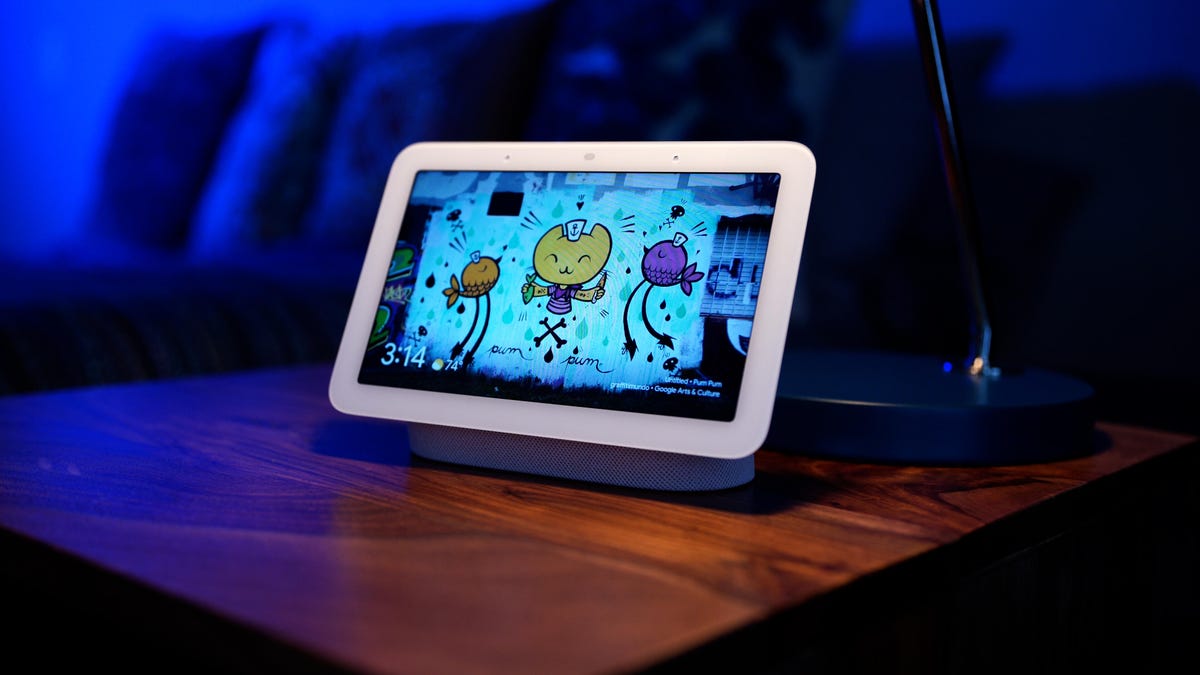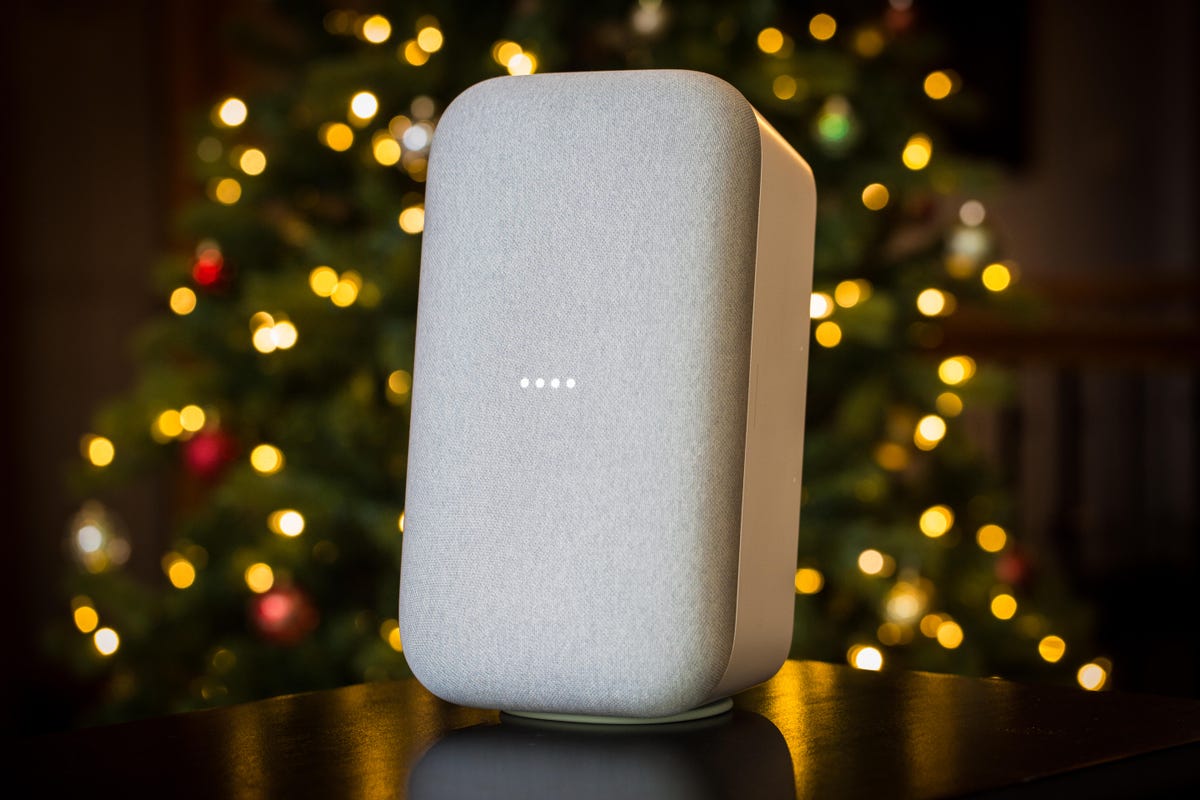When it comes to smart speakers there are two main options: Amazon Alexa on Echo speakers, and Google’s Assistant on the Nest Audio line. After the reveal of Assistant powered by Gemini AI at Google I/O, it’s clear that Google’s prior Assistant is showing its age. While Gemini is integrating with many of Google’s apps, Android and even the iOS version of the Google app, the company made no mention of Gemini’s arrival to the Nest line.
During the I/O keynote, Google’s Gemini AI previews prompted some confusion, but it was quite clear that the various implementations of the AI can provide contextual help in lots of situations. Use cases included asking questions about a video that you’re watching on a phone, requesting the AI to create an image or quickly researching a topic without opening another app or browser tab. Gemini’s experimental Project Astra assistant even responds with a new voice that has more personality.
Meanwhile, there wasn’t a single mention of any Nest product, let alone speakers. A Google spokesperson confirmed that this year I/O was meant to focus on the mobile Gemini experience, and that there wasn’t anything to share at this time regarding Nest speakers or displays. And that’s personally disappointing because I have Nest Audio speakers throughout my home. I have a stereo pair in my living room/kitchen, an original Google Home speaker in my bathroom and a Nest Mini in my bedroom. My favorite aspect of my Nest setup is the audio quality and making speaker groups. I do run into hiccups, especially with the current version of the Google Assistant.
The current system needs an upgrade, but I don’t know if my setup will get left behind by this Gemini-AI wave. That’s a shame because a Gemini AI-powered Google Assistant could take current Nest products, like speakers, and make them more useful while fixing some of their shortcomings.
Google demonstrated Astra on a phone, which uses Gemini AI to answer context-specific questions.
More context, please
Compared to the ways we saw Gemini give snappy AI-powered answers, here’s how Google’s older assistant falls short. There are times when the Google Assistant tries to answer a simple query, but can only do so by sending me a link to Google search results. Other times when it does give me a response, the answer isn’t something that is researched but rather recited from a website. For example, I asked my speakers how to tell if a particular vegetable was spoiled, and the speaker read out a snippet that it found on a website. It does the job, but if the Nest Google Assistant were powered by Gemini, it could also research the answer and put together a summary, which feels more natural.
The Google Assistant in its current state is only contextually aware of what I ask about in certain situations. For instance, after I asked my speaker yesterday about some old carrots — I asked if I could still use them to make a broth — the assistant began reciting steps on how to make a vegetable broth, instead of letting me know if it’s a good idea to cook spoiled carrots. (It isn’t, don’t use spoiled vegetables in anything).
The current Google Assistant does a decent job with weather. When I ask about the weather today in New York, and then follow up with “What about Chicago?” my Nest speakers will provide the Windy City’s weather without me needing to specify that, and that’s nice.
Then there’s the issue of music streaming. Although Google Assistant supports several third-party music services, when I switched from Google’s own YouTube Music Premium over to Apple Music, there was a clear reduction in search accuracy. For example, when I asked for a particular song it played the wrong track on an album or streamed music from an entirely different artist.
This week when I attempted to get my speakers to play Call Me Mother by RuPaul, it repeatedly queued up American by RuPaul instead — even after multiple requests. There’s no guarantee that Gemini would be a better DJ, but if it could analyze my emails into a summary (as Google hyped during I/O) I’d hope it could pick the right song.

The second-generation Nest Hub, which went on sale in 2021.
Are new Nest speakers needed for Gemini?
Google’s Nest line of speakers and smart screens haven’t had a lineup refresh in years. The last time the company revealed a new speaker was the Nest Audio in 2020, and its most recent smart screen is the second-generation Nest Hub from 2021. This was before Google revealed its in-house Tensor processors that now power the Google Pixel phone line, which provides processing capabilities for some on-device artificial intelligence features.
At Google I/O, Gemini AI is being shown off in cloud apps like Gmail in addition to being a key part of Android 15. Is it possible that the existing line of Nest speakers isn’t able to handle a beefier Gemini-powered AI assistant?
While I hope that isn’t the case, it is important to note that generative AI platforms like Gemini are still fairly new and might not work as well as prior assistants without the help of improved on-device processing. Newer Nest Audio speakers came with improvements for faster voice assistance in comparison to the original 2016 Google Home. It’s been quite a while since it was last refreshed. By comparison, Amazon’s Echo line has continued to grow in 2023 with new Echo Show smart screens, the Echo Pop speaker and an announcement that the Echo assistant will use AI to become more conversational.

The Google Home Max is still the largest speaker Google has released with its assistant.
If a new Nest speaker is needed, let’s at least go big
To be clear, I don’t want to have to buy a round of new Google speakers to get a Gemini-powered Assistant working on them. I hope it just arrives as an update. I’d love to see a new version of the original Google Home Max which included an auxiliary input for other audio sources like a record player, could get quite loud at maximum volume and is still the largest speaker that the search company ever released. Instead, the Nest Hub Max smart display prioritizes the screen and video camera over pumped-up audio quality.
For now, Google appears to be letting Sonos, Apple’s HomePod and Amazon’s Echo Studio corner the higher-end smart speaker category. If Google’s holding back the Nest Audio line to relaunch it with Gemini, they may as well go bold.
Editors’ note: CNET used an AI engine to help create several dozen stories, which are labeled accordingly. The note you’re reading is attached to articles that deal substantively with the topic of AI but are created entirely by our expert editors and writers. For more, see our AI policy.


